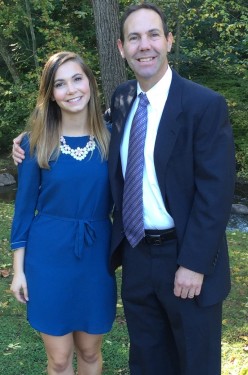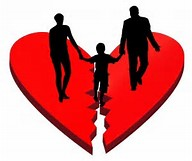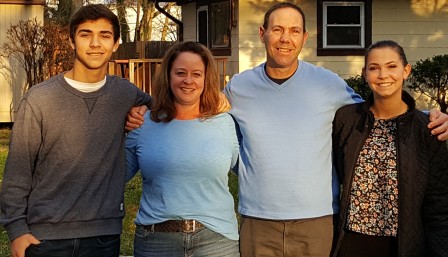“Give a man a fish and you feed him for a day. Teach a man to fish and you feed him for a lifetime.”
— Chinese philosopher
Lure a man to fish online, and he may starve to death.
At the risk of sounding positively Trumpian, Who knew dating in your 50s could be so difficult?
My two-year expedition in online dating has been more famine than feast. And several times when I thought I had caught a feast, they slipped through my net and swam away.
Half of my 18 online dates have been one-and-done short-timers. I’ve been ghosted, ditched and canceled upon last-minute. I’ve been berated and insulted by text when I told one woman whom I had dated three times that I had decided to exclusively date someone else. I’ve been rejected twice by the same woman in two separate episodes of dating several months apart. I had one girlfriend who kept insisting I was just going to “walk away” so why bother having expectations.
I’ve dated a free spirit from California who danced with a Hula-Hoop; a former exchange student from Denmark who I mistook for a Georgia Dawg southern gal; a world-ranked Masters’ age-group swimmer; a Hawaii Ironman triathlete and former dolphin trainer; a flight attendant; and four nurses.
I’ve experienced the thrills of a budding new relationship and the joys of connection and companionship; and the dysfunction, volatility and fickleness of dating gone awry amid an online environment of commoditization, easy escape and endless choices.
And I’ve met wonderful women, all, like me, with their own foibles and “baggage,” several of whom I stay in touch and friendly with even after dating relationships fell apart,
It Can’t Be This Hard
I didn’t think it would be this hard. I would be searching for mature, experienced, serious-minded women in their late 40s and 50s, who had their lives together and knew what they wanted. As a relatively stable, easy-going man with a solid, respected profession, physically fit, healthy and active, whose appearance is more youthful than his chronological age, and who does not have any obviously deal-breaking habits like drinking, I believed securing a long-term, committed relationship would only be a matter of time. It still may be, but I feel like I’m in the fourth overtime period of a game that should have been clinched. I wanted a sprint; I got an ultra-marathon.
The warnings were there, in research on this relatively new social phenomena: That online dating promotes a transactional, “marketplace” approach to relationship-forming, fostering assumptions that the perfect commodity exists if one just searches enough, that more options are ever available, that algorithmic compatibility necessarily translates to relationship success, and that if one encounters challenges, there’s an easy solution – discard and return to swiping.
I wasn’t looking to play the field, or for “hook-ups.” I was looking for quality, not volume; for lasting satisfaction, not instant gratification. I may not hit the jackpot immediately, I knew. It was a numbers game, and the numbers would not have to go too high, I thought. I have spun some cherries, and cashed in for periods of dating and relationship bliss, but have ultimately come up with lemons in my hunt for one long-term, meaningful relationship. And some bruises from dating TKOs.
A Crossroads
I did not want or intend to be dating again. But my life came to a midlife crossroads in 2017, when my marriage was at a standstill, lacking in some core ingredients to go the distance and suffering from inertia. I had just finished a graduate program in mental health counseling, and wanted to combine a start in a new career as a therapist with a move to a new place, after living in the Maryland suburbs for nearly 30 years. I wanted to make the change with my wife, but couldn’t get her onboard.
My desire to start anew intersected with marriage malaise. The result was a head-on collision, with the marriage on life support, and soon to be declared dead. My wife asked me to make a decision on moving without us necessarily deciding on the future of the marriage. I decided to accept a job in Charleston, SC, and moved in November 2017. By the time I returned to Maryland a month later to retrieve more stuff, the marriage was kaput.
Since arriving in Charleston, I have had dates with 20 different women, all but two from online sources. That’s prolific. Too bad being prolific is not my goal. I can’t believe that number myself, and that, as I write this, I’m single. A friend marvels at my relative success in getting dates, and inherently, my persistence and will not to give up out of frustration and disappointment. But what one might deem successful is another’s fool’s gold. To my chagrin, it’s become a never-ending process of sifting the silt, interspersed with gold nugget finds that have lost their luster prematurely.
A Marketplace Mindset
In “Online Dating: A Critical Analysis From the Perspective of Psychological Science,” published in the journal Psychological Science in the Public Interest, authors found that even though online dating expands opportunities, offers users an initial sense of compatibility through profile screening and mathematical algorithms, and provides technological platforms for introductory communications prior to in-person meetings, “many aspects of online dating do not appear to improve romantic outcomes and might even undermine them.”
For example, researchers noted, the emphasis on profile sketches to identify potential matches often runs contrary to what a searcher actually would find attractive in a person once becoming acquainted in person.
Reviewing dozens of online profiles can create a “judgmental, assessment-oriented” outlook, and can overwhelm users’ thinking, which can “ultimately undermine romantic outcomes.” Also, dating sites’ communications platforms can potentially diminish attraction if the flirty back-and-forth “yields unrealistic or overly particular expectations that will be disconfirmed upon a face-to-face meeting.”
Online dating may create a mindset of assessment rather than exploration, where people become commodities to peruse and test — a calculated cost-benefit analysis — rather than complex beings requiring openness, curiosity and patience to understand and adapt. This transactional approach can be “dehumanizing” and foster “shallow interactions,” the researchers determined.
Some online dating participants, under the influence of marketing messages from many online sites, buy into the idea that the goal of searching online is to find one’s “soulmate,” the researchers noted. People who subscribe to the soulmate philosophy – a black-and-white view that a relationship is “meant to be” or is doomed —are likely to leave a relationship when confronted with inevitable problems. Conversely, people who believe that relationships grow and evolve, and gain strength by overcoming challenges, are more likely to persist and progress when the going gets rough, they wrote.
“Soulmate beliefs may encourage daters to persist in their search for the perfect mate even when they have become involved in potentially rewarding (albeit imperfect) relationships,” the researchers found. “Almost all romantic relationships eventually encounter significant stresses and strains, which suggests that this mindset is likely to undermine relationship well-being over the long-run.”
The researchers highlighted a message from eHarmony’s founder urging his site’s users to determine the type of person they need to be “really happy,” and essentially to hold tight to their standards because “hard work” will not overcome a mismatch. Thus, the researchers concluded that it is not surprising that a common refrain from online daters is that they would rather be alone than involved in any relationship where they are not “one hundred percent happy.”
The Online Rollercoaster
My online dating life started forebodingly. I agreed to meet my first date at Panera Bread at 8. I showed up to a nearly deserted restaurant after work, and looked all over for somebody resembling the online photos, finding nobody familiar. After wolfing down a lonely dinner, I left 45 minutes later just before closing time, thinking, I’m not going to survive this racket long if this is what it’s all about.
When I got home, I messaged my date to say I was at Panera and did not see her, asking if I possibly went to the wrong Panera. She replied incredulously that she was indeed at the Panera and had even asked an employee if anyone came in looking for her, and that I had stood her up, confirming it was the right place. I protested against the accusation, saying I even had a time-stamped receipt for my food that I could forward her. I was dumbfounded…what kind of twisted game? Then it dawned on me.
“Were you there at 8 in the morning?”
“Yes,” she responded. “I thought you knew.”
We patched up our misunderstanding and met the next morning at the same place. She was lovely. We agreed to meet again. But soon after, she said she had to go out of state to care for a “gravely ill” mother (a common online dating blow-off line or the real deal? I’ll never know.) I never saw her again.
I’ve had four pairings that I would call bona fide relationships, three of them from online dating sites, which have lasted between one and five months. It pains and embarrasses me to say it, but it’s the reality: Each time I’ve been the dumpee. And to me, the end each time has come like a stealth frying pan blow to the head – fast, hard, stinging and seemingly out of nowhere.
The first and longest-lasting girlfriend told me one morning at breakfast, just before leaving on a women’s weekend, “I want to talk to you about your mindset.” I was clueless about what that meant. Before I ever saw her again, she broke up with me over the phone.
Even so, several months later, she helped me pack when I moved, and I helped her put away Christmas decorations in her attic. It wasn’t until then that she expounded upon at least one aspect of her “mindset” comment. She was taking hormone injections to increase energy and libido. She referred to a time when she went to bed, and I chose to stay up and watch a movie, intimating she was disappointed in my pedestrian choice of activity.
A second girlfriend of three months became indignant when I texted her to say I had stopped on my way to her house and would be 30 minutes later than the appointed time for a casual get-together, later complaining that her ex-husband had ”disrespected” her time constantly during their marriage, lumping me in with the louse.
As I headed to her beachfront rental that fateful night, she texted me to say, “Sorry, I have made other plans.” Thinking she was joking, I texted back to say I would be there in 10 minutes, once traffic cleared on the bridge to the island. Response: “Again, I have made other plans. Have a good night.”
I went to her house anyway. She wasn’t kidding; she was gone, and declined to answer my phone calls. A week later, I showed up at her door unannounced to give her flowers and offer an in-person apology. For several weeks thereafter, I flapped in the wind while she proffered, “I don’t know what I want,” and asked me to wait. Well, like the two characters in Beckett’s play who wait upon someone who never arrives, I was Waiting for Godot.
Several months later, she reached out to me and sought to rekindle the relationship. We saw each other several times, but neither of us could commit to anything consistent or meaningful. We’ve remained in touch and friendly.
My last online relationship started like gangbusters. We saw each other four weekends in a row, the last one an overnight trip, upon her initiative, in which I met her daughter and attended a concert. After I dropped her off at home, I didn’t hear from her again, save for a few terse responses to my texts. Now I have the ignominious knowledge of what being “ghosted” feels like – awful and bewildering. Six weeks later, out of the blue, she wished me a happy new year. We got back in touch, and she apologized, saying she had been suffering (more than I realized) from excessive job stress, exhaustion, lack of sleep and weight loss.
I accepted her apology. So…Go fish.
Online Dating Scorecard
One and done – 9
Two and through – 2
Three and free – 2
Close but no cigar (quasi-girlfriends, five dates or more) – 2
Bona fide girlfriends — 3
Posted in
Dating,
dating in midlife,
divorce,
Online Dating,
relationships,
Uncategorized and tagged
Dating,
midlife,
one-and-done,
Online Dating,
relationships,
soulmate |
 literally say they don’t know who they are, their identities tied up in someone else or poorly developed through desperate attempt to flee from a past of deprivation; who were tormented so much in childhood they can’t imagine being deserving of pursuing goals or a dream; who feel anxious, aimless and alone amid the crumbling of marriages and launching of adult children; who want to find happiness but have no idea how to define it; who struggle to escape the grip of abusive relationships; and who lose jobs, status, and financial security due to addiction.
literally say they don’t know who they are, their identities tied up in someone else or poorly developed through desperate attempt to flee from a past of deprivation; who were tormented so much in childhood they can’t imagine being deserving of pursuing goals or a dream; who feel anxious, aimless and alone amid the crumbling of marriages and launching of adult children; who want to find happiness but have no idea how to define it; who struggle to escape the grip of abusive relationships; and who lose jobs, status, and financial security due to addiction.



 percent, or nearly 1 out of every 4 men, at 60 to 69, according to the
percent, or nearly 1 out of every 4 men, at 60 to 69, according to the  burying the hurt, anger, disappointment, sadness or other negative emotions until one day they boil over and surface in a torrent, providing release for the emotional-baggage carrier and a knockdown punch for the recipient of the pent-up emotions, unaware of the depth and intensity of feelings. I’ve been on both the unleashing and receiving ends of the bubbling emotional volcanos, and it’s never pretty.
burying the hurt, anger, disappointment, sadness or other negative emotions until one day they boil over and surface in a torrent, providing release for the emotional-baggage carrier and a knockdown punch for the recipient of the pent-up emotions, unaware of the depth and intensity of feelings. I’ve been on both the unleashing and receiving ends of the bubbling emotional volcanos, and it’s never pretty. was only for other people who marry the wrong person, have poor character or morals, or can’t figure out how to make a marriage work, only to end up immersed in the previously unthinkable, bewildered by how such a good thing could have turned so unpleasant.
was only for other people who marry the wrong person, have poor character or morals, or can’t figure out how to make a marriage work, only to end up immersed in the previously unthinkable, bewildered by how such a good thing could have turned so unpleasant. presence with materials, she was saying.
presence with materials, she was saying.
